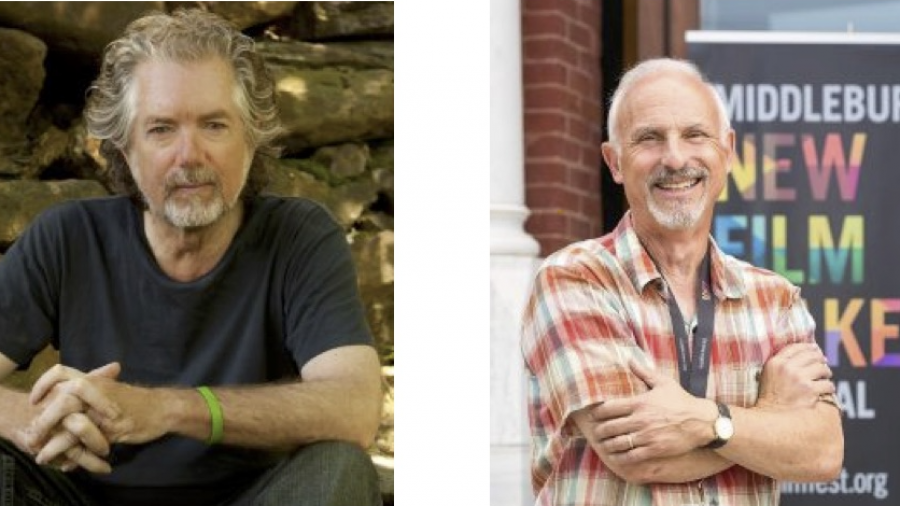Writer Lyra Woods sits down with Artistic Director Jay Craven and Producer Lloyd Komesar from Middlebury New Filmmakers Festival to talk about their festival programming, audience engagement, as well as the importance of building a strong film community for emerging filmmakers.
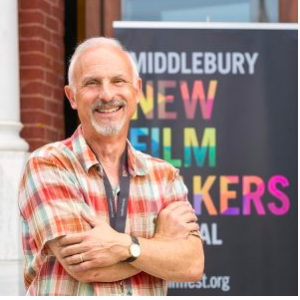
Lloyd Komesar, Producer
Q: How do you keep your audience engaged throughout the year?
Lloyd: In regular years, we have three main programs. First, the Middlebury New Filmmakers Festival is typically scheduled the last weekend of August. Second, the MNFF Selects Screening Series, where we present a monthly film between October and May. The third component is the MNFF Vermont Tour, which takes place on one weekend in early February, where several of our best feature films from the previous festival are shown all over Vermont in the space of three days. We also do educational work. Jay conducts seminars called “Seeing in the Dark” for Middlebury Union High School students in the spring or fall. We show the students a variety of short films and have them vote on the films and talk about their thoughts. We would have held the seminar in mid-May this year but couldn’t because of the pandemic. However, we initiated a bi-weekly series of live evening conversations on Zoom with directors, producers, actors and, in one instance, an Emmy Award-winning costume designer. We have done five conversations, and we hope to continue the series after our MNFF6: ONLINE film festival ends in early September. Since all our venues are closed for the rest of the year, we are committed to maintaining our continuity through an online presence.
Jay: Another unique perk for the filmmakers is the Vermont Symphony Orchestra (VSO) Music Award for short films. This award goes to a filmmaker who has best integrated music in an original way into their film. The VSO performs the filmmaker’s score while we show the film live simultaneously at our “on-the-ground” festival. In the following winter, the VSO takes the award winning film on their tour, and performs the score while playing the film on another five or six occasions. Our collaboration with the VSO has been incredible. Lastly, we have a screenplay competition just for our alumni who have previously screened their work at the Middlebury New Filmmakers Festival. We select two winners per year, and each receives a $10k grant to further develop their script. Our first award went to director Allison Mattox from New York. She expanded her short film Échappé, which is an historical drama about a Russian ballet troupe coming to the U.S, to a feature script. It was well done. We will be announcing our second winner during our upcoming online festival.
Q: What is your core mission?
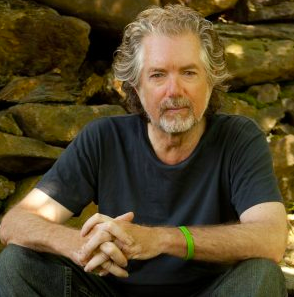
Jay Craven, Artistic Director
Jay: Our film festival submissions are open to first and second time filmmakers. Our goal is to help them advance their careers, as well as to cultivate a family for those who play at our festival. In the films that were submitted to us, we find that documentaries are more numerous, and in many ways of higher quality than narrative films. And this is because, I think, funding systems and distribution revenues in the U.S. are severely limited. So we’re interested in helping bolster narrative productions.
Lloyd: There are many other film festivals that foster first or second time filmmakers to some degree, but there aren’t many festivals focused entirely on new filmmakers, those who really need a break. We have a relatively young festival, but we have gained a degree of recognition for being dedicated this way. Moreover, when you base your festival in a small town, you can create the kind of community engagement that doesn’t exist in a large metropolitan area. In Middlebury, within the four days of our festival, the energy stays right there. Our audience talks to filmmakers all the time. Our Q & As are great. Our parties are spectacular! The filmmakers feel welcomed and celebrated by the community.
Q: How was the selection process for you this year?
Lloyd: We received 330 films this year in the midst of a pandemic; it is a little bit lower than usual, which is around 375 – 400. We have a screening committee of experienced professionals. Their top selections are sent to Jay.
Jay: I review around 130 films. I keep an ongoing conversation with Lloyd. Additionally, we curate some films by first or second time filmmakers that have not applied, but we become aware of their exceptional works. In regards to that, we have special screenings and a wide range of guests– actors, designers. The Academy Award Winning production designer David Wasco (La La land, Pulp Fiction) did a two-hour presentation for us. We like to have multifaceted elements that increase people’s awareness of the filmmaking crafts, but also provide young filmmakers opportunities to be a part of workshops on production or distribution, cinematography, production design, and etc.
Lloyd: The challenge of this year is how to make the switch to do something virtual. Since we have built a strong film community, we decided to move forward and put together the best program we can. We’re screening 26 features, and 33 shorts, altogether 59 films. Typically we screen 115 films spread over five screens. This year we’re very selective. We also curated an additional 10 films that are on the feature side. In the short categories, we grouped them according to themes. Unlike many other festivals where shorts are lumped together on a single evening, we typically put two to three shorts in front of a feature film. Even though the features are usually what attract people to go, we find that putting the short in front of a feature– which acts as a surprise and a delight– elevates the shorts. This year, we figured the best way to elevate the shorts was to put them into collections, an equivalent to watching a feature film.
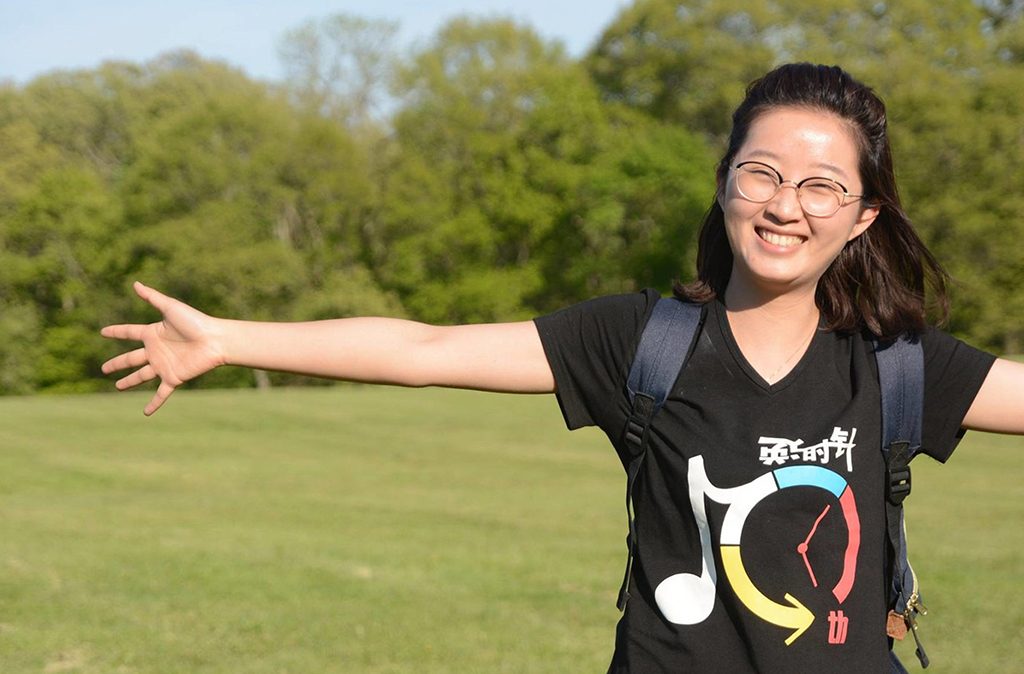
Still from the film Finding Yingying.
Q: What are the themes that Middlebury New Filmmakers Festival focus on? What is the niche?
Jay: Thematically, we are interested in humanistic perspectives, not any political lens certainly, in regards to both narrative and documentary. In terms of aesthetic considerations, we want to approach the filmmakers on their own terms, and identify films that succeed on the filmmaker’s own terms. We’re looking for filmmakers who unify their themes and materials, and have conviction for the stories that they are telling. Ultimately the filmmaker does the right thing, in terms of making sure the story is coherent, consistent, and articulate. I weigh aesthetic consideration higher than specific thematic consideration.
There’s no question that the documentary filmmakers are largely driven towards social engagement. Our question is do they take a fresh approach? Is the work open to somebody who may not agree with their thesis– to the extent that they may be illuminated by what the filmmaker presents? We’re interested in documentaries as a process of discovering. We’re also interested in diversity, and international filmmakers. We want to make connections through multicultural kinds of common grounds. In today’s world especially, that’s important.
Lloyd: This year we have Finding Yingying (2020), which is a profound cross-cultural documentary film that explores the murder of a Chinese international student in the United States. Similarly, Down A Dark Stairwell (2020) explores the story of an NYC Asian American police officer who shot and killed an African American man in 2014. Neither of these films take an exploitive approach to these sensational materials, but instead they become cultural explorations of these highly charged incidents.
We encourage films that take risks and tell stories from truly underrepresented communities. This applies to narrative films as well. We have a film called Agosto (2019), which takes place in Cuba 1994 during a stressful economic time, centering on a happy-go-lucky character. The film allows us to understand Cuba from a certain time and place. We occasionally have world premieres, but we feel more generally that we ought to embrace a very diverse array of stories. We treasure new filmmakers that are able to illuminate subtle but convincing points of view.
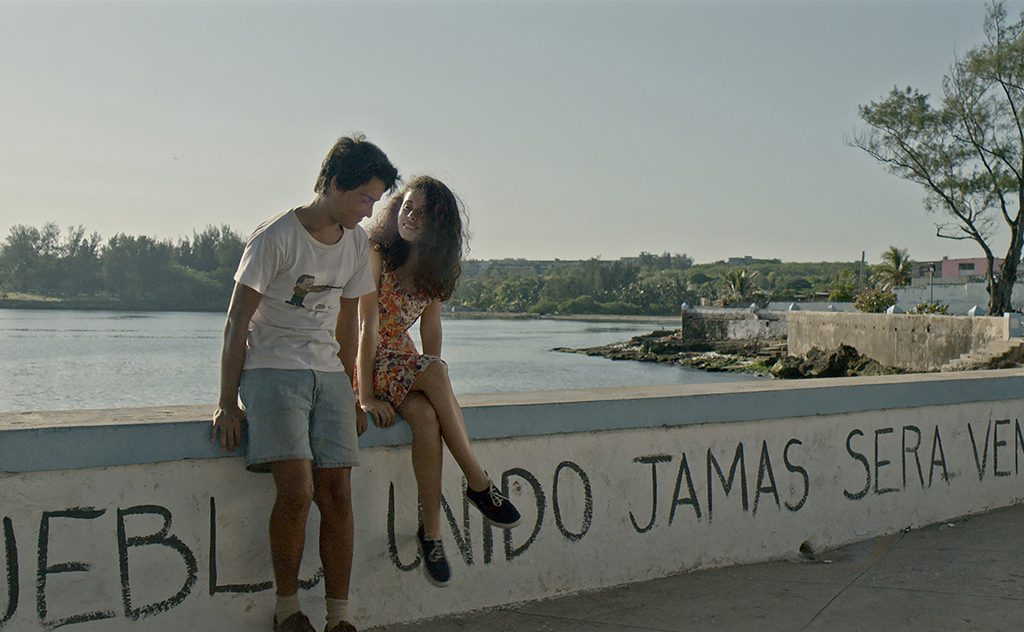
Still from the film Agosto.
Q: This year, MNFF recognizes two remarkable filmmakers as honorees. Can you tell us more about them?
Jay: Ken Loach is a world class filmmaker. He practices a form of socialist realism that yields profoundly detailed, naturalistic performance around questions of class particularly that are not easy to represent in nuanced ways. It’s an honor to recognize him. As an opportunity during the pandemic, we’re able to have guests who are normally not able to travel to our festival. Likewise, documentary filmmaker Dawn Porter’s work– particularly in this moment of BLM and discussion of voting rights– her most recent film about John Lewis grabbed our attention. She’s made films that focus on legal aid, abortion rights, the presidential campaign of Bobby Kennedy, etc. She draws attention to social questions that are compelling and timely. Her films are deeply grounded in terms of cultural representation.
Q: Can you tell us about the genesis story of MNFF?
Lloyd: It began in October 2013, when my wife and I were in Vermont and we went to the screening of Northern Borders one evening. It was Jay’s film. We stayed for the Q & A, and talked to Jay afterwards. A few months later, I was back in California and had this idea for a local startup festival. LA had many festivals, but Middlebury had none! For me, a film festival devoted to new filmmakers seemed like a good direction to go in. So I wrote to Jay in March, 2014. He invited me to visit with him at his Vermont home in May. We talked, and a few days after he agreed to be the Artistic Director of MNFF . It took us about 15 months to launch our first festival in August 2015 in Middlebury.
Jay: Middlebury has been very supportive. Our festival has become better known certainly throughout the region. We see natural and organic growth every year. We want to create a place for new filmmakers to be seen, and not to worry about competing with high budget films.
To find out more about MNFF, including film listings for this year’s online festival, that runs August 27-September 3, visit MNFF Welcome Page
MNFF7 submission window opens on January 4th, 2021 via Submission on Film Freeway

